Talk about anything that comes in your mind and isn't related to Vortex Wars
 by fluppa » Tue Oct 20, 2015 5:42 pm
by fluppa » Tue Oct 20, 2015 5:42 pm
Johnny Tillotson - Poetry in Motion  https://youtu.be/5Yiq7MCX8_w
https://youtu.be/5Yiq7MCX8_w (1961)
Johnny Tillotson (born April 20, 1939 in Jacksonville, Florida) is an American singer and songwriter. He enjoyed his greatest success in the early 1960s, when he scored nine top-ten hits on the pop, country and adult contemporary Billboard charts including "Poetry In Motion" and the self-penned "It Keeps Right On a-Hurtin'". He also sang "Yellow Bird", an adaptation of the Haitian song. No oriiginal video clip is available for the songs, so if you find one please sent the links to me.Johnny Tillotson - Why do I love you so  https://youtu.be/wxaC6c_La_g
https://youtu.be/wxaC6c_La_g (1960)
From late 1959, a succession of singles - "True True Happiness," "Why Do I Love You So," and a double-sided single covering the R&B hits "Earth Angel" and "Pledging My Love" - all reached the bottom half of the Hot 100. His biggest success came with his sixth single, the up-tempo "Poetry in Motion", written by Paul Kaufman and Mike Anthony, and recorded in Nashville with session musicians including saxophonist Boots Randolph and pianist Floyd Cramer, Released in September 1960, it went to # 2 on the Hot 100 in the US, and # 1 on the UK Singles Chart in January 1961. It sold over one million copies, and was awarded a gold disc by the RIAA.
-

fluppa
-
- Posts: 424
- Joined: Mon Jul 07, 2014 2:52 pm
- Location: Germany
 by GiveEmBothBarrels » Tue Oct 20, 2015 5:51 pm
by GiveEmBothBarrels » Tue Oct 20, 2015 5:51 pm
Bobby Vee was offered "Poetry in Motion" at the same time as Tillotson. He recorded it and was going to release it as a single but Tillotson beat him to the punch so he decided against it.
-
GiveEmBothBarrels
-
- Posts: 60
- Joined: Thu Feb 20, 2014 11:05 pm
 by fluppa » Thu Oct 22, 2015 12:52 pm
by fluppa » Thu Oct 22, 2015 12:52 pm
Rosie & The Originals - Angel Baby 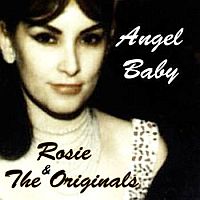 https://www.youtube.com/watch?v=bu2dAQ3xb8s
https://www.youtube.com/watch?v=bu2dAQ3xb8s (1961)
Rosie and the Originals were an American 1960s group best known for their single, "Angel Baby." Fronted by lead singer Rosie Hamlin, the group produced two singles (including "Angel Baby") for Highland Records and, like many other artists of the era, ended up in protracted legal battles with their record label over royalties and credits. Rosalie "Rosie" Méndez Hamlin was born in Klamath Falls, Oregon, on July 21, 1945, to a Mexican mother and an Anglo-American father. She spent part of her childhood between Anchorage, Alaska and California, before her family moved to National City, California. She started singing with a band at thirteen. She wrote the lyrics for "Angel Baby" as a poem for "my very first boyfriend" when she was 14 years old, still attending Mission Bay High School in San Diego, California. When she was 15, she and some friends rented the only recording studio they could find within 100 miles of San Diego located in San Marcos, California, to record the song. The studio was owned by an airplane mechanic who had taken part of his hangar to make it. The resulting record had a very simplistic sound, and, in fact, was eventually slightly damaged from excessive playing, so the group was unable to find a record label to distribute it.[citation needed] Finally, after taking the master to a department store, they convinced a manager to play it in the listening booth of the store's music department.[citation needed] The song received positive reactions from teenage listeners, and a scout from Highland Records offered the group a recording contract, under the condition that the company take possession of the master recording, and that David Ponce be named as the author of the song, as he was the eldest member of the group. "Angel Baby" made its radio debut in December 1960, before the group had even received their contract. When the contract finally came, Hamlin found that she was ineligible to collect record royalties from the song because she was not listed as the songwriter. This led to the group's break-up, and although Hamlin secured the copyright to her music in 1961, decades of battles over royalties followed. John Lennon recorded a studio version of"Angel Baby" for his 1975 Rock 'n' Roll album, but the track would go unissued until 1986's Menlove Avenue. A screen representation of Rosie and the Originals performing the song Angel Baby, from the film, My Family (Mi Familia) directed by Gregory Nava. With Jeanette Jurado as Rosie Hamlin and David Salas, Bill Mondragon, Eric Mondragon, Dennis Jimenez, Alex Tanasi, as the Originals is to be seen with this link https://youtu.be/ggCGcM-IwZE
-

fluppa
-
- Posts: 424
- Joined: Mon Jul 07, 2014 2:52 pm
- Location: Germany
 by fluppa » Thu Oct 22, 2015 1:01 pm
by fluppa » Thu Oct 22, 2015 1:01 pm
The Chantels - Maybe 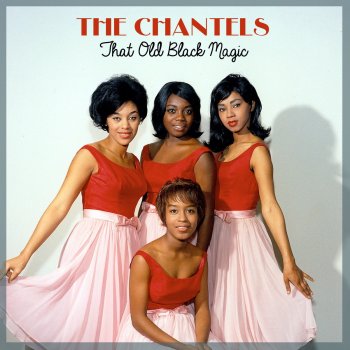 https://youtu.be/1-1JyHLiiTw
https://youtu.be/1-1JyHLiiTw (1957)
The Chantels were the second African-American girl group to enjoy nationwide success in the United States, preceded by The Bobbettes. The group was established in the early 1950s by students attending St. Anthony of Padua School in The Bronx. The original five members consisted of Arlene Smith (lead), Sonia Goring, Rene Minus, Jackie Landry Jackson and Lois Harris. They derived their name from that of a rival school, St. Frances de Chantal.
In 1957 the Chantels, then in high school, had been singing as a group for several years. Unlike some black groups whose influences were based in gospel, the quintet was influenced by classical music and Latin hymns. Lead singer Arlene Smith had received classical training and performed at Carnegie Hall at age 12. She provided both lyrics and music. The girls were discovered by Richard Barrett, lead singer of The Valentines, and by the summer of 1957 they were signed to End Records, owned by George Goldner. Their first single was "He's Gone" (Pop #71) in August 1957, written by Arlene Smith. Released in December 1957, their second single, "Maybe," was a hit (#15 Billboard Hot 100; #2 R & B chart) in January 1958. It sold over a million copies and was awarded a gold disc. The following releases were less successful but End did release an album originally titled We Are the Chantels. The original cover had a photo of the group. That album was soon withdrawn and repackaged with a picture of two white teenagers picking out a song; the title was shortened to The Chantels. The group was dropped by End in 1959, and Arlene Smith embarked upon a solo career. Harris left to pursue a college education.
Last edited by
fluppa on Wed Aug 02, 2017 6:47 pm, edited 2 times in total.
-

fluppa
-
- Posts: 424
- Joined: Mon Jul 07, 2014 2:52 pm
- Location: Germany
 by fluppa » Thu Oct 22, 2015 2:27 pm
by fluppa » Thu Oct 22, 2015 2:27 pm
Neil Sedaka Neil Sedaka (born March 13, 1939) is an American pop/rock singer, pianist, composer and record producer. Since his music career began in 1957, he has sold millions of records as an artist and has written or co-written over 500 songs for himself and others, collaborating mostly with lyricists Howard Greenfield and Phil Cody.
After graduating from Abraham Lincoln High School, Sedaka and some of his classmates formed a band called The Tokens. The band had minor regional hits with songs like "While I Dream", "I Love My Baby", "Come Back, Joe", and "Don't Go", before Sedaka launched out on his own in 1957. Eventually, after a few personnel changes, in 1961, the Tokens hit No. 1 on the Billboard pop charts with the international smash "The Lion Sleeps Tonight". Meanwhile, the very young Sedaka's first three solo singles, "Laura Lee", "Ring-a-Rockin'", and "Oh, Delilah!" failed to become hits (although "Ring-a-Rockin'" earned him the first of many appearances on Dick Clark's American Bandstand), but they demonstrated his ability to perform as a solo singer, so RCA Victor signed him to a recording contract.Neil Sedaka - Oh Carol  https://youtu.be/XINLbkEflPE
https://youtu.be/XINLbkEflPE (1959)
His first single for RCA, "The Diary", was inspired by Connie Francis, one of Sedaka and Greenfield's most important clients, while the three were taking a temporary break during their idea-making for a new song. Francis was writing in her diary, Sedaka asked if he could read it, and Connie promptly replied with a "no." After Little Anthony and the Imperials passed on the song, Sedaka recorded it himself, and his debut single hit the Top 15 on the Billboard Hot 100, peaking at No. 14 in 1958.
However, his next two singles did not fare so well. His second single, a novelty tune titled "I Go Ape", just missed the Top 40, peaking at No. 42 but it became a more successful single in the United Kingdom with a No. 9. The third single, "Crying My Heart Out for You", was a commercial failure, missing the Hot 100 entirely, peaking at No. 111 but it also became a very successful single on the pop charts in Italy with a No. 6. RCA Victor had lost money on "I Go Ape" and "Crying My Heart Out For You" and was ready to drop Sedaka from their label. But Sedaka's manager, Al Nevins, persuaded the RCA executives to give him one last chance.Neil Sedaka - Happy Birthday Sweet Sixteen  https://youtu.be/5h2zp96Hzhg
https://youtu.be/5h2zp96Hzhg (1961)
Knowing he would not get another chance if he failed again, and desperate for another hit, Sedaka himself bought the three biggest hit singles of the time and listened to them repeatedly, studying the song structure, chord progressions, lyrics and harmonies—and he discovered that the hit songs of the day all shared the same basic musical anatomy. Armed with his newfound arsenal of musical knowledge, he set out to craft his next big hit song, and he promptly did exactly that: "Oh! Carol" delivered Sedaka his first domestic Top 10 hit, reaching No. 9 on the Hot 100 in 1959 and going to No. 1 on the Italian pop charts in 1960, giving Sedaka his first No. 1 ranking. In the UK, the song spent a total of 17 weeks in the top 40, peaking at no.3 (4 weeks). In addition, the B-side, "One Way Ticket", reached No. 1 on the pop charts in Japan. Sedaka had dated Carole King when he was still at high school, which gave him the idea to use her name in the song. Gerry Goffin – King's husband – took the tune, and wrote the playful response "Oh! Neil", which King recorded and released as an unsuccessful single the same year. Thus, this was the only time the melody of the song was used by a popular artist and a future sensation around the same time.Neil Sedaka - Breaking Up is Hard To Do  https://www.youtube.com/watch?v=wUtkpIINDyw
https://www.youtube.com/watch?v=wUtkpIINDyw (1962)
After establishing himself in 1958, Sedaka kept churning out new hits from 1960 to 1962. His flow of Top 30 hits during this period included: "Stairway to Heaven" (No. 9, 1960); "You Mean Everything to Me" (No. 17, 1960); "Run, Samson, Run" (No. 27, 1960); "Calendar Girl" (No. 4, 1961; also reached No. 1 on the Japanese and Canadian pop charts); "Little Devil" (No. 11, 1961); "Happy Birthday Sweet Sixteen" (No. 6, 1961); his signature song, "Breaking Up Is Hard To Do" (No. 1, two weeks: August 11 and 18, 1962); and "Next Door to an Angel" (No. 5, 1962). Singles not making the Top 30 during this period included "Sweet Little You" (No. 59, 1961) and "King of Clowns" (No. 45, 1962). RCA issued four LPs in the United States and Great Britain of his works during this period, and also produced Scopitone and Cinebox videos of "Calendar Girl" in 1961, "Breaking Up Is Hard To Do" in 1962, and "The Dreamer" in 1963. (His second LP was the only one made in the big band style with songs combined in a single record.) He made regular appearances on such TV programs as American Bandstand and Shindig! during this period.
Last edited by
fluppa on Wed Jun 08, 2016 8:31 am, edited 1 time in total.
-

fluppa
-
- Posts: 424
- Joined: Mon Jul 07, 2014 2:52 pm
- Location: Germany
 by fluppa » Thu Oct 22, 2015 5:45 pm
by fluppa » Thu Oct 22, 2015 5:45 pm
Blondie Blondie is an American rock band founded by singer Debbie Harry and guitarist Chris Stein. The band was a pioneer in the early American new wave and punk scenes of the mid-late 1970s. Its first two albums contained strong elements of these genres, and although successful in the United Kingdom and Australia, Blondie was regarded as an underground band in the United States until the release of Parallel Lines in 1978. Over the next three years, the band achieved several hit singles including "Call Me", "Atomic" and "Heart of Glass" and became noted for its eclectic mix of musical styles incorporating elements of disco, pop, rap, and reggae, while retaining a basic style as a new wave band.
Blondie broke up after the release of its sixth studio album The Hunter in 1982. Debbie Harry continued to pursue a solo career with varied results after taking a few years off to care for partner Chris Stein, who was diagnosed with pemphigus, a rare autoimmune disease of the skin.
The band re-formed in 1997, achieving renewed success and a number one single in the United Kingdom with "Maria" in 1999, exactly 20 years after their first UK No.1 single ("Heart of Glass").
The group toured and performed throughout the world during the following years, and was inducted into the Rock and Roll Hall of Fame in 2006. Blondie has sold 50 million records worldwide and is still active today. The band's ninth studio album, Panic of Girls, was released in 2011, and their tenth, Ghosts of Download, was released in 2014. Blondie - In the Flesh 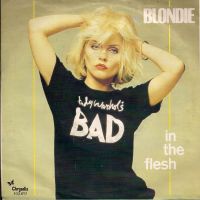 https://youtu.be/I9hJDUHTLUg
https://youtu.be/I9hJDUHTLUg (1976)
Blondie - Denis  https://youtu.be/ObIXid2VdTU
https://youtu.be/ObIXid2VdTU (1978)
Blondie - Sunday Girl / Dreaming 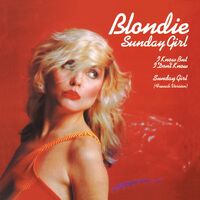
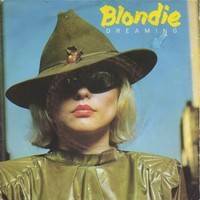 https://www.youtube.com/watch?v=L-78pcv ... e=youtu.be
https://www.youtube.com/watch?v=L-78pcv ... e=youtu.be (TOTP TV Show 1979)
Blondie - Union City Blue 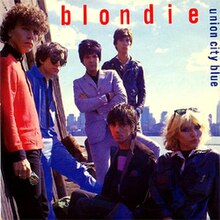 https://youtu.be/Hvqgb1D6Opw
https://youtu.be/Hvqgb1D6Opw (1979)
Last edited by
fluppa on Mon Nov 23, 2015 6:05 pm, edited 2 times in total.
-

fluppa
-
- Posts: 424
- Joined: Mon Jul 07, 2014 2:52 pm
- Location: Germany
 by fluppa » Fri Oct 23, 2015 6:14 pm
by fluppa » Fri Oct 23, 2015 6:14 pm
The Surpremes The Supremes were an American female singing group and the premier act of Motown Records during the 1960s. Founded as the Primettes in Detroit, Michigan, in 1959, the Supremes were the most commercially successful of Motown's acts and are, to date, America's most successful vocal group with 12 number one singles on the Billboard Hot 100. Most of these hits were written and produced by Motown's main songwriting and production team, Holland–Dozier–Holland. At their peak in the mid-1960s, the Supremes rivaled the Beatles in worldwide popularity, and their success made it possible for future African American R&B and soul musicians to find mainstream success.
Founding members Florence Ballard, Mary Wilson, Diana Ross, and Betty McGlown, all from the Brewster-Douglass public housing project in Detroit, formed the Primettes as the sister act to the Primes (with Paul Williams and Eddie Kendricks, who went on to form the Temptations). Barbara Martin replaced McGlown in 1960, and the group signed with Motown the following year as the Supremes. Martin left the act in early 1962, and Ross, Ballard, and Wilson carried on as a trio.
During the mid-1960s, the Supremes achieved mainstream success with Ross as lead singer. In 1967, Motown president Berry Gordy renamed the group Diana Ross & the Supremes, and replaced Ballard with Cindy Birdsong. Ross left to pursue a solo career in 1970 and was replaced by Jean Terrell, at which point the group's name reverted to the Supremes. After 1972, the lineup changed more frequently; Lynda Laurence, Scherrie Payne, and Susaye Greene all became members of the group during the mid-1970s. The Supremes disbanded in 1977 after 18 years. The Surpremes - Baby Love  https://youtu.be/ZAWSiWtUK2s
https://youtu.be/ZAWSiWtUK2s (1964)
The Surpremes - Where Did Our Love Go  https://youtu.be/izzKUoxL11E
https://youtu.be/izzKUoxL11E (1964)
The Supremes - Come See About Me https://youtu.be/jpcIzZjqooQ
https://youtu.be/jpcIzZjqooQ (1964)
The Surpremes - Stop ! In the Name of Love  https://youtu.be/ETKc_IzsSTQ
https://youtu.be/ETKc_IzsSTQ (1965) and in a live TV Performance
https://youtu.be/mu_-Y0JJJRcThe Supremes - My World Is Empty Without You  https://youtu.be/Z14qfKkfUV0
https://youtu.be/Z14qfKkfUV0 (1965)
The Supremes - You can't hurry love (Take 1)  https://youtu.be/fQ7uXX9K7Sk
https://youtu.be/fQ7uXX9K7Sk (1966) and in a TV Performance
https://youtu.be/H4Xb-4v2kuo
Last edited by
fluppa on Wed Jun 08, 2016 11:08 am, edited 1 time in total.
-

fluppa
-
- Posts: 424
- Joined: Mon Jul 07, 2014 2:52 pm
- Location: Germany
 by fluppa » Sat Oct 24, 2015 5:47 pm
by fluppa » Sat Oct 24, 2015 5:47 pm
Bobby Goldsboro - Honey  https://youtu.be/oaYlKj36FEQ
https://youtu.be/oaYlKj36FEQ (1968)
Bobby Goldsboro (born January 18, 1941) is an American pop and country singer-songwriter. He had a string of pop and country hits in the 1960s and 1970s. His biggest hit was 1968's "Honey", a tearjerker about the death of man's
lover. The song, written by Bobby Russell, was recorded in one take. It became the largest-selling record in the world for 1968 and topped the Hot 100 for five weeks, reached number two in the UK Singles Chart on two separate
occasions (1968 and 1975).
Last edited by
fluppa on Wed Aug 02, 2017 6:49 pm, edited 3 times in total.
-

fluppa
-
- Posts: 424
- Joined: Mon Jul 07, 2014 2:52 pm
- Location: Germany
 by fluppa » Sun Oct 25, 2015 7:54 am
by fluppa » Sun Oct 25, 2015 7:54 am
Elvis PresleyElvis Aaron Presley (January 8, 1935 – August 16, 1977) was an American singer and actor. Regarded as one of the most significant cultural icons of the 20th century, he is often referred to as "the King of Rock and Roll", or simply,
"the King".
Presley was born in Tupelo, Mississippi as a twinless twin, and when he was 13 years old, he and his family relocated to Memphis, Tennessee. His music career began there in 1954, when he recorded a song with producer Sam Phillips
at Sun Records. Accompanied by guitarist Scotty Moore and bassist Bill Black, Presley was an early popularizer of rockabilly, an uptempo, backbeat-driven fusion of country music and rhythm and blues. RCA Victor acquired his
contract in a deal arranged by Colonel Tom Parker, who managed the singer for more than two decades. Presley's first RCA single, "Heartbreak Hotel", was released in January 1956 and became a number-one hit in the United
States. He was regarded as the leading figure of rock and roll after a series of successful network television appearances and chart-topping records. His energized interpretations of songs and sexually provocative performance
style, combined with a singularly potent mix of influences across color lines that coincided with the dawn of the Civil Rights Movement, made him enormously popular—and controversial.Elvis Presley - I was the One https://youtu.be/Egb21Pujd5o
https://youtu.be/Egb21Pujd5o (1955)
Elvis Presley - I want You, I need You, I love You  https://youtu.be/l1Obxq3kvnc
https://youtu.be/l1Obxq3kvnc (1955)
Elvis Presley - Ready Teddy https://youtu.be/YzRyN3CWyvA
https://youtu.be/YzRyN3CWyvA (1956)
Elvis Presley - Baby I don't care https://youtu.be/gOc8-crqh0g
https://youtu.be/gOc8-crqh0g (1957)
Elvis Presley - Lover Doll https://youtu.be/zf8YP1wFrto
https://youtu.be/zf8YP1wFrto (1958)
Elvis Presley - Trouble https://youtu.be/zfkLnZhhoTY
https://youtu.be/zfkLnZhhoTY (1958)
In November 1956, he made his film debut in Love Me Tender. In 1958, he was drafted into military service. He resumed his recording career two years later, producing some of his most commercially successful work before
devoting much of the 1960s to making Hollywood movies and their accompanying soundtrack albums, most of which were critically derided. In 1968, following a seven-year break from live performances, he returned to the
stage in the acclaimed televised comeback special Elvis, which led to an extended Las Vegas concert residency and a string of highly profitable tours. In 1973, Presley was featured in the first globally broadcast concert via
satellite, Aloha from Hawaii. Several years of prescription drug abuse severely damaged his health, and he died in 1977 at the age of 42.Elvis Presley - It's Now or Never (Take 1)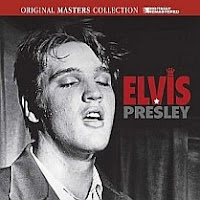 https://youtu.be/Mymu-04_Z2U
https://youtu.be/Mymu-04_Z2U (1960)
Elvis Presley - Guitar Man https://youtu.be/51amEkWNUV8
https://youtu.be/51amEkWNUV8 (1968)
Elvis Presley - If I can dream https://youtu.be/xA142IsjQiE
https://youtu.be/xA142IsjQiE (1968)
Elvis Presley - I just can't help believin (Rehearsal)  https://youtu.be/goeCB1Vpq_4
https://youtu.be/goeCB1Vpq_4 (1970)
Elvis Presley - The Wonder of You 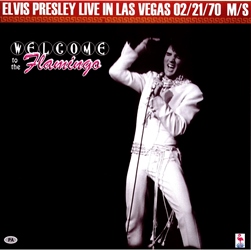 https://youtu.be/GD-J8liOXOQ
https://youtu.be/GD-J8liOXOQ (1970)
Presley is one of the most celebrated and influential musicians of the 20th century. Commercially successful in many genres, including pop, blues and gospel, he is the best-selling solo artist in the history of recorded music,
with estimated record sales of around 600 million units worldwide. He won three Grammys, also receiving the Grammy Lifetime Achievement Award at age 36, and has been inducted into multiple music halls of fame.
-

fluppa
-
- Posts: 424
- Joined: Mon Jul 07, 2014 2:52 pm
- Location: Germany
 by fluppa » Fri Oct 30, 2015 7:32 pm
by fluppa » Fri Oct 30, 2015 7:32 pm
Sam CookeSamuel Cook (January 22, 1931 – December 11, 1964), professionally known as Sam Cooke, was an American recording artist, singer-songwriter and entrepreneur generally considered among the greatest of all time. Influential as both
a singer and composer, he is commonly known as the King of Soul for his distinctive vocals and importance within popular music. His pioneering contributions to soul music contributed to the rise of Aretha Franklin, Bobby Womack,
Al Green, Curtis Mayfield, Stevie Wonder, Marvin Gaye, Billy Preston and popularized the likes of Otis Redding and James Brown. AllMusic biographer Bruce Eder wrote that Cooke was "the inventor of soul music", and possessed "an
incredible natural singing voice and a smooth, effortless delivery that has never been surpassed."
Cooke had 30 U.S. top 40 hits between 1957 and 1964, plus three more posthumously. Major hits like "You Send Me", "A Change Is Gonna Come", "Cupid", "Chain Gang", "Wonderful World", and "Twistin' the Night Away" are some of his
most popular songs. Cooke was also among the first modern black performers and composers to attend to the business side of his musical career. He founded both a record label and a publishing company as an extension of his careers
as a singer and composer. He also took an active part in the Civil Rights Movement.Sam Cooke - You send mehttps://youtu.be/85ekOXs1-7k (1957)
Sam Cooke - That's all I need to know https://youtu.be/EGr_EXL4qrM
https://youtu.be/EGr_EXL4qrM (1958)
Sam Cooke - Wonderful World https://youtu.be/jNO72aCnVr0 (1960)
Sam Cooke - Chain Gang https://youtu.be/ce_HNyUQMGc
https://youtu.be/ce_HNyUQMGc (1960)
Sam Cooke - Cupid https://youtu.be/xDZgw7lC1T4
https://youtu.be/xDZgw7lC1T4 (1961)
Sam Cooke - A Whole Lotta Woman https://youtu.be/TTxISv_mMys (1962)
Sam Cooke - Bring it on Home to Me 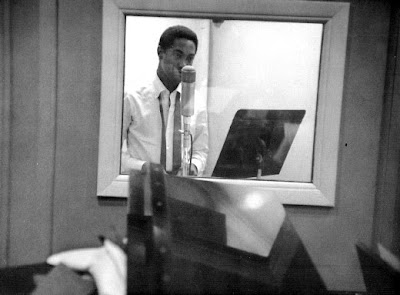 https://youtu.be/gZB4jcPmFGo
https://youtu.be/gZB4jcPmFGo (1962)
On December 11, 1964, at the age of 33, Cooke was fatally shot by Bertha Franklin, the manager of the Hacienda Motel in Los Angeles, California. After an inquest, the courts ruled Cooke's death to be a justifiable homicide.
Since that time, the circumstances of his death have been called into question by Cooke's family and his wide circle of friends and acquaintances.
Last edited by
fluppa on Wed Aug 02, 2017 6:09 pm, edited 4 times in total.
-

fluppa
-
- Posts: 424
- Joined: Mon Jul 07, 2014 2:52 pm
- Location: Germany
Return to General discussion
Who is online
Users browsing this forum: No registered users and 15 guests



































